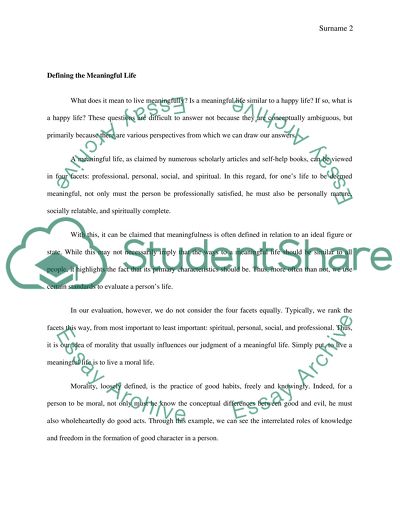Cite this document
(“Do human beings need illusions or fictions in order to live life Term Paper”, n.d.)
Do human beings need illusions or fictions in order to live life Term Paper. Retrieved from https://studentshare.org/philosophy/1592443-do-human-beings-need-illusions-or-fictions-in-order-to-live-life-meaningfully-why-or-why-not-discuss-by-drawing-on-the-work-of-two-philosophers-we-have-discussed-this-term-to-defend-your-claim
Do human beings need illusions or fictions in order to live life Term Paper. Retrieved from https://studentshare.org/philosophy/1592443-do-human-beings-need-illusions-or-fictions-in-order-to-live-life-meaningfully-why-or-why-not-discuss-by-drawing-on-the-work-of-two-philosophers-we-have-discussed-this-term-to-defend-your-claim
(Do Human Beings Need Illusions or Fictions in Order to Live Life Term Paper)
Do Human Beings Need Illusions or Fictions in Order to Live Life Term Paper. https://studentshare.org/philosophy/1592443-do-human-beings-need-illusions-or-fictions-in-order-to-live-life-meaningfully-why-or-why-not-discuss-by-drawing-on-the-work-of-two-philosophers-we-have-discussed-this-term-to-defend-your-claim.
Do Human Beings Need Illusions or Fictions in Order to Live Life Term Paper. https://studentshare.org/philosophy/1592443-do-human-beings-need-illusions-or-fictions-in-order-to-live-life-meaningfully-why-or-why-not-discuss-by-drawing-on-the-work-of-two-philosophers-we-have-discussed-this-term-to-defend-your-claim.
“Do Human Beings Need Illusions or Fictions in Order to Live Life Term Paper”, n.d. https://studentshare.org/philosophy/1592443-do-human-beings-need-illusions-or-fictions-in-order-to-live-life-meaningfully-why-or-why-not-discuss-by-drawing-on-the-work-of-two-philosophers-we-have-discussed-this-term-to-defend-your-claim.


